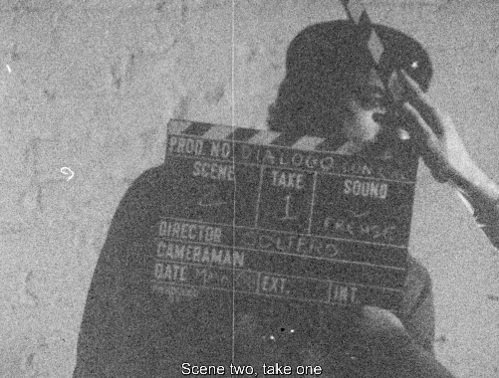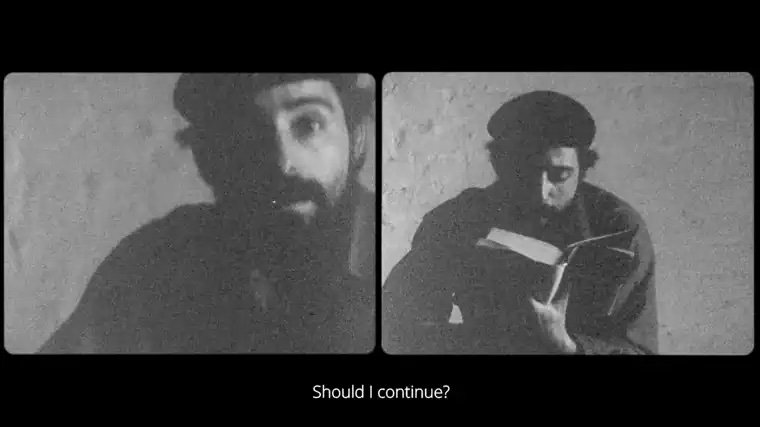
Diálogo con José: Translating and Subtitling José Rodríguez Soltero's Dialogue with Che
Over the course of several months in 2017, I worked towards the transcription, translation and subtitling of José Rodríguez Soltero's Dialogue with Che (1968). Initially, I embarked on this project in 2016, while I was taking a Film Preservation course taught by Bill Brand, mentor and inspiration for film preservationists all over the globe. I had mentioned the–by then mysterious– film to friend and colleague Eddy Colloton who diligently authored a NFPF Avant-Garde Masters Grant proposal to preserve the dual-projection film while he was interning at the Film-maker’s Cooperative.
The only surviving print of Dialogue with Che, shot in 1967, was placed under the custody of the Filmmaker's Coop, along with Rodríguez-Soltero's other noteworthy works; Jerovi (1965) and Lupe (1966), starring NYC underground legend and fellow Boricua, Mario Montez.
Dialogue with Che represents a slight nod towards radical political cinema in Rodríguez-Soltero's tragically short film career. It conceivably embodies a gesture that points to a lesser-known facet of his life and his performative work. Notably, a 1965 performance titled LBJ at the Bridge Theater on St. Marks Place, where Rodriguez Soltero set fire to a U.S. flag, accompanied by the music of The Ballad of the Green Berets.
Dialogue clearly references and dalliances with Third Cinema in Latin America and with Ernesto "Che" Guevara's Diaries in Bolivia. Strongly influenced by Brechtian theater techniques and the Latin American theater scene in New York City, the film features Venezuelan artist Rolando Peña reciting passages from Che's diary and riffing with the director as he carousels the camera firmly plotted on a tripod while zooming in and out of his subject. Peña, then, commences his reading by reciting an excerpt from Roberto Fernández Retamar's Leer al Che (Reading Che). Fernández Retamar is a central figure and intellectual of post-revolutionary Cuba, author of a chief work of Caribbean literature; Calibán y otros ensayos (Caliban and Other Essays).
The act of translating, beyond the textual proved to be grueling task made bearable by the generous collaboration of Rolando Peña, the Venezuelan artist, performer and co-conspirator of Dialogue. I was put in contact with Rolando by Luciano Piazza, who was planning on screening the film for the ISM, ISM, ISM film series at LA Film Forum. I spoke with Rolando over the phone for hours– about making art in New York City, about his relationship with José and his suggestion to screen Dialogue as a double projection 3 minutes apart from each other. Energized from our conversation, I started transcribing the text with Rolando and Karla Gómez’s assistance.
There is a subtext in Rolando and Jose’s interactions as depicted in the film. It’s almost a facsimile for how people from Latin America talk and interact with each other. Suspicious, but in full recognition of an hermandad. There is a familiarness in their reciprocal communication, but also a queer opposition. I did not have to translate their body language, It’s crystallized in the image for all of us to see.
José Rodríguez-Soltero was born in Santurce, Puerto Rico in 1943. He studied at the University of Puerto Rico, there he shot ‘El Pecado Original’, influenced by Luis Buñuel and Kenneth Anger. In New York City, he taught film and video courses at Cooper Union. He was editor in chief of a film quarterly, named MEDIUM. Later in life, he shifted to video and continued to produce political work throughout the 1970s, particularly relating to Puerto Rican decolonization. He died in NYC in 2009 in relative anonymity.
